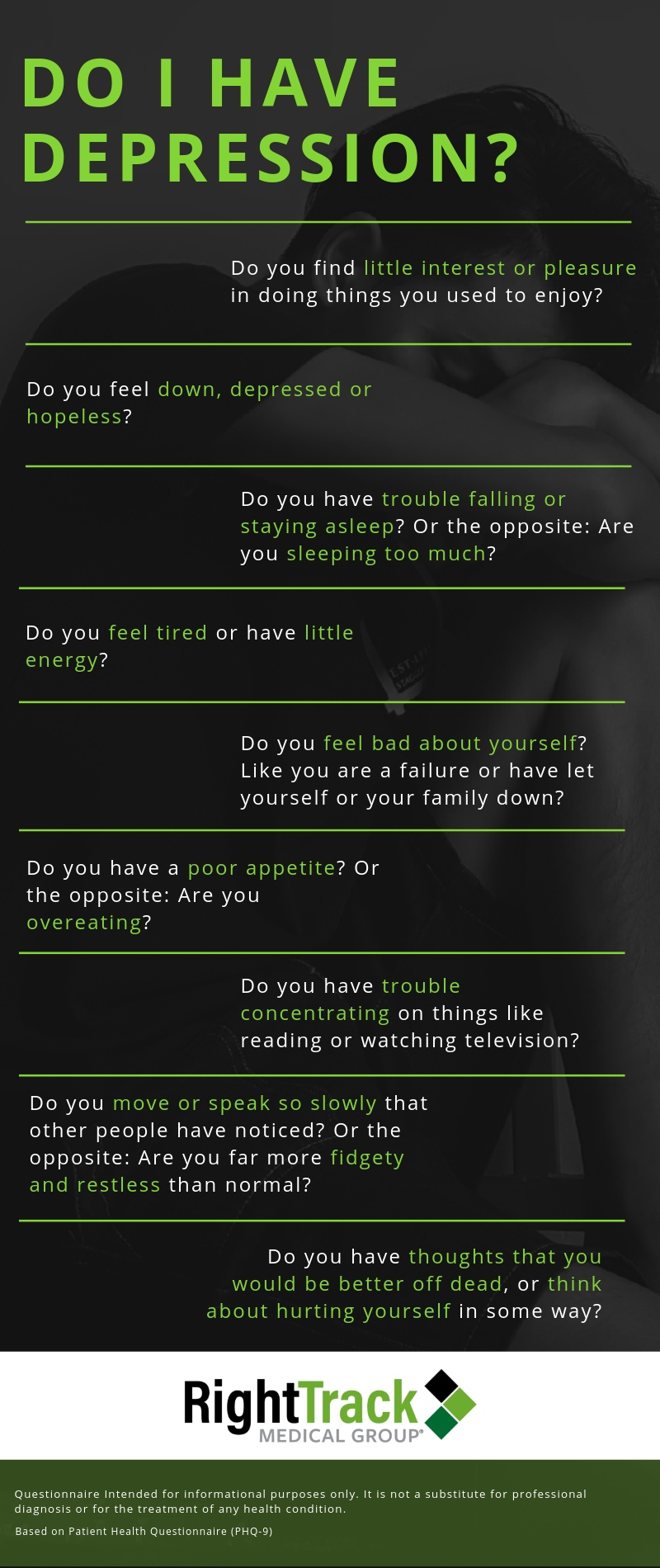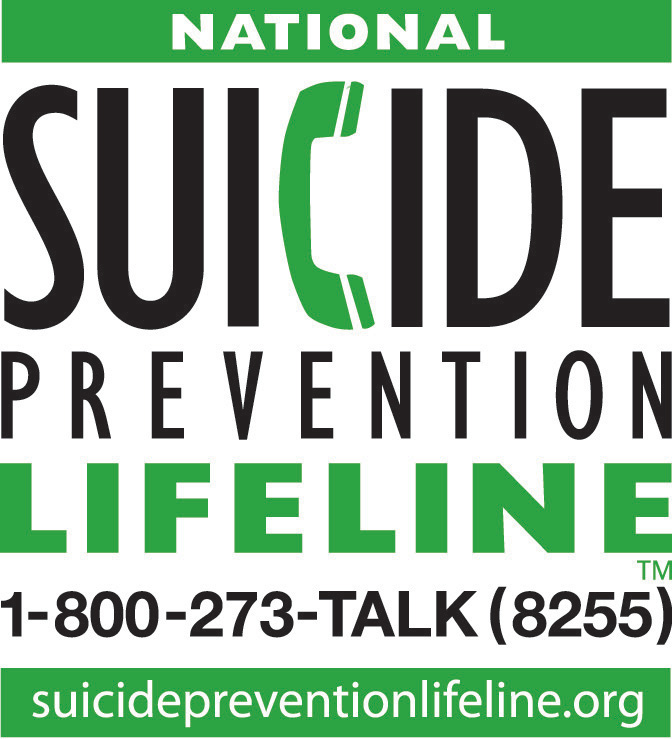If you or a loved one is experiencing depression, you are not alone. In fact, one in five adults in America is living with a mental illness, and 16 million adults — almost 7 percent — have experienced some form of depression in the last year. Depression ranges from intense single episodes, to more mild yet ongoing experiences of not feeling like yourself.
Depression may affect any person, regardless of age, race, gender, or socioeconomic status, though it is more prevalent in certain populations than others. While depression can happen at any age, it often begins in the teens, 20s or 30s. Research suggests women are more likely to experience depression, yet it may be that women are more likely to seek treatment and be vocal about their depression.
Depression is a mood disorder that causes a persistent feeling of sadness and loss of interest. It affects all facets of daily life for at least two weeks, including how you think, feel, and behave. It is not simply a feeling of sadness that one needs to “snap out of;” rather, it is more pervasive and persistent, and affects the whole being of a person. It can be devastating to you and your loved ones when left untreated.
“While it is normal to experience a range of emotions as a human being, including sadness, depression is more than sadness…”
While there is no single cause for depression, traumatic life-altering events may trigger depression. Causes include genetics, as depression is more common in people whose blood relatives also have depression. Causes can also include brain changes and chemistry, and having a trauma background.
Other risk factors include chronic medical conditions; daily stress; stress related to low income or job loss; low self-esteem; low social support; having experienced prior depression; being single, divorced or widowed; and drug and alcohol abuse. For many women, hormones can also play a causal role in depression.
At times, medical issues may contribute to the experience of depression, so it is important to rule out possible contributing causes such as thyroid issues or vitamin D deficiencies.
The four most common types of depression include major depression, persistent depressive disorder (formerly called dysthymia), bipolar disorder, and seasonal affective disorder (SAD).
Major depression is significant in intensity and is what most people think of when they think of depression. With major depression, the darkness and sadness is engulfing. Persistent depressive disorder involves living with low mood and less joy for at least two years. While the symptoms are long in duration, they are experienced less intensely than someone dealing with major depression.
Bipolar disorder involves periods of depression followed by periods of manic behavior, which involves high energy and often impulsive and reckless behavior. Seasonal affective disorder is a type of depression experienced in the fall and winter, as the days get shorter and the body is faced with significant shifts in natural rhythms and light.
There are two additional types of depression that solely affect women. Perinatal depression is depression that involves major and minor episodes that may occur during pregnancy, as well as up to 12 months following the delivery of a child (postpartum depression). Premenstrual dysphoric disorder (PMDD) is a severe form of premenstrual syndrome (PMS); it causes women to experience extreme changes in mood during the period of time from ovulation to the start of their menstruation.
“There is reason to hope: Depression is treatable.”
If you are struggling with depression, you may not be experiencing a great deal of hope right now. But there is reason to hope: Depression is treatable. It may be your current state, but it is not where you have to stay. Often, the combination of finding a trusted counselor, receiving appropriate medication, and adopting healthy lifestyle choices can simultaneously work to support growth and movement through depression to a healthy mental outlook.
Early diagnosis is important; if you think you might be experiencing depression, reach out for help. By being proactive and implementing psychotherapy and medication, you are claiming a path towards hope and healing.

This is a screening measure to help you determine whether you might have depression that needs professional attention. This screening tool is not designed to make a diagnosis of depression but to be shared with your primary care physician or mental health professional to inform further conversations about diagnosis and treatment.
At times, we all may find ourselves in a low place, so low that we do not feel like ourselves. Things that used to bring us joy, no longer do. We may find ourselves struggling with basic, day-to-day functioning. While this manifests differently for each individual, it often shows up in areas related to energy, fatigue, and social connectedness. The energy it takes to get out of bed and take a shower may feel insurmountable. While typically you might enjoy being around other people, you may have begun to isolate yourself. Sometimes depression manifests as constant irritability that is out of character.
While it is normal to experience a range of emotions as a human being, including sadness, depression is more than sadness. In addition, it is about more than difficulty adjusting to life transitions and is also different than bereavement.
If you feel that you might be experiencing depression, you may reflect on your emotional state through the lens of functioning. Do you feel so low and disheartened that it is interfering with your relationships and ability to function? Is your daily life being affected?
If you discern that you are experiencing depression and that you are continuously having thoughts of self-harm, seek help right away. Your life is a gift.
If you or someone you know is considering suicide, call the National Suicide Prevention Lifeline at 1-800-273-TALK (8255) to talk to someone anytime, 24/7. In case of a mental health emergency, dial 911 or go directly to your nearest emergency room.

ADAA Depression Screening Tool (Also known as the Patient Health Questionnaire-9 – (PHQ-9): https://adaa.org/sites/default/files/Depression-ScreeningTool.docx
Provided by the ADAA (Anxiety and Depression Association of America), the PHQ-9 is a screening measure to help you determine whether you might have depression that needs professional attention. This screening tool is not designed to make a diagnosis of depression but to be shared with your primary care physician or mental health professional to inform further conversations about diagnosis and treatment.
American Family Physician: https://www.aafp.org/journals/afp.html
American Family Physician is a biweekly peer-reviewed medical journal published by the American Academy of Family Physicians. It provides continuing medical education for family physicians and other primary care clinicians.
Anxiety and Depression Association of America Screening Tools: https://adaa.org/living-with-anxiety/ask-and-learn/screenings
ADAA is an international nonprofit membership organization dedicated to the prevention, treatment, and cure of anxiety, depression, OCD, PTSD, and co-occurring disorders through education, practice, and research. The ADAA provides various screening tools, the results of which are intended to be shared with your doctor to inform further conversations about diagnosis and treatment.
Depression Guide: National Alliance on Mental Illness: https://www.nami.org/Learn-More/Mental-Health-Conditions/Depression/Overview
Provided by the National Alliance on Mental Illness, this depression guide has helpful information on the symptoms, causes, diagnosis, and treatment of depression. They also have information available on how to provide support and resources for yourself, a family member, or a friend who may be struggling with depression.
National Alliance on Mental Illness (NAMI): https://www.nami.org/
The National Alliance on Mental Illness is a United States-based advocacy group originally founded as a grassroots group by family members of people diagnosed with mental illness. NAMI identifies its mission as being “dedicated to building better lives for the millions of Americans affected by mental illness.” Their website contains information and resources on various mental illnesses, support for those struggling with a mental illness, and ways to get involved and help spread awareness about mental health.
Screening for Depression: https://www.aafp.org/afp/2012/0115/p139.html
Psychiatrist Douglas M. Maurer, program director of the Family Medicine Residency at Carl R. Darnall Army Medical Center, provides an overview of recommendations provided by the U.S. Preventive Services Task Force (USPSTF) in relation to the need for mental health screenings. The USPSTF recommends screening in adolescents and adults in clinical practices that have systems in place to ensure accurate diagnosis, effective treatment, and follow-up. They cite the Patient Health Questionnaire (PHQ)-2 and PHQ-9 as commonly used and validated screening tools.
Signs and Causes of Depression: Mayo Clinic: https://www.mayoclinic.org/diseases-conditions/depression/symptoms-causes/syc-20356007
The Mayo Clinic is recognized as a leading worldwide nonprofit academic medical center based in Rochester, Minnesota, focused on integrated clinical practice, education, and research. It employs more than 4,500 physicians and scientists, along with another 58,400 administrative and allied health staff. The Mayo Clinic guide on depression contains information on the symptoms of depression across age ranges, causes, risk factors, complications, prevention, and also information on diagnosis and treatment.
Six common depression types: Harvard Health: https://www.health.harvard.edu/mind-and-mood/six-common-depression-types
Harvard Health Publishing is the media and publishing division of the Harvard Medical School of Harvard University, under the direction of Dr. David H. Roberts, Dean for External Education. The following article provides a brief overview of the four most common types of depression: major depression, persistent depressive disorder (formerly known as dysthymia), bipolar disorder, and seasonal affective disorder.
By Elizabeth Burton, LPC, EdS, NCC for Right Track Medical Group
This article is provided for information only and is not a substitute for diagnosis or treatment by a mental health professional.